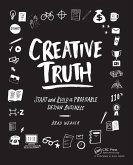Zachary Kaiser
Interfaces and Us (eBook, ePUB)
User Experience Design and the Making of the Computable Subject
18,95 €
18,95 €
inkl. MwSt.
Sofort per Download lieferbar

9 °P sammeln
18,95 €
Als Download kaufen

18,95 €
inkl. MwSt.
Sofort per Download lieferbar

9 °P sammeln
Jetzt verschenken
Alle Infos zum eBook verschenken
18,95 €
inkl. MwSt.
Sofort per Download lieferbar
Alle Infos zum eBook verschenken

9 °P sammeln
Zachary Kaiser
Interfaces and Us (eBook, ePUB)
User Experience Design and the Making of the Computable Subject
- Format: ePub
- Merkliste
- Auf die Merkliste
- Bewerten Bewerten
- Teilen
- Produkt teilen
- Produkterinnerung
- Produkterinnerung

Bitte loggen Sie sich zunächst in Ihr Kundenkonto ein oder registrieren Sie sich bei
bücher.de, um das eBook-Abo tolino select nutzen zu können.
Hier können Sie sich einloggen
Hier können Sie sich einloggen
Sie sind bereits eingeloggt. Klicken Sie auf 2. tolino select Abo, um fortzufahren.

Bitte loggen Sie sich zunächst in Ihr Kundenkonto ein oder registrieren Sie sich bei bücher.de, um das eBook-Abo tolino select nutzen zu können.
We're all familiar with smart TVs making suggestions on our future watching, real-world exercise data being transferred into stats and infographics on our workout apps and turning up our home heating before we start our commute - but how does this world of technological interfaces affect our actions and perceptions of self?When society relies on computer models and their interfaces to explain and predict everything from love to geopolitical conflicts, our own behaviour and choices are artificially changed. Zachary Kaiser explores the harmful social consequences of this idea - balanced against…mehr
- Geräte: eReader
- mit Kopierschutz
- eBook Hilfe
- Größe: 3.96MB
Andere Kunden interessierten sich auch für
![Interfaces and Us (eBook, PDF) Interfaces and Us (eBook, PDF)]() Zachary KaiserInterfaces and Us (eBook, PDF)18,95 €
Zachary KaiserInterfaces and Us (eBook, PDF)18,95 €![White Space Is Not Your Enemy (eBook, ePUB) White Space Is Not Your Enemy (eBook, ePUB)]() Rebecca HagenWhite Space Is Not Your Enemy (eBook, ePUB)39,95 €
Rebecca HagenWhite Space Is Not Your Enemy (eBook, ePUB)39,95 €![Creative Truth (eBook, ePUB) Creative Truth (eBook, ePUB)]() Brad WeaverCreative Truth (eBook, ePUB)44,95 €
Brad WeaverCreative Truth (eBook, ePUB)44,95 €![Don't Force It, Solve It! (eBook, ePUB) Don't Force It, Solve It! (eBook, ePUB)]() George KalmpourtzisDon't Force It, Solve It! (eBook, ePUB)48,95 €
George KalmpourtzisDon't Force It, Solve It! (eBook, ePUB)48,95 €![The Anticipatory Design Playbook (eBook, ePUB) The Anticipatory Design Playbook (eBook, ePUB)]() Joana CerejoThe Anticipatory Design Playbook (eBook, ePUB)49,95 €
Joana CerejoThe Anticipatory Design Playbook (eBook, ePUB)49,95 €![UX Style Frameworks (eBook, ePUB) UX Style Frameworks (eBook, ePUB)]() Marti GoldUX Style Frameworks (eBook, ePUB)46,95 €
Marti GoldUX Style Frameworks (eBook, ePUB)46,95 €![Neuro Design (eBook, ePUB) Neuro Design (eBook, ePUB)]() Darren BridgerNeuro Design (eBook, ePUB)21,95 €
Darren BridgerNeuro Design (eBook, ePUB)21,95 €-
-
-
We're all familiar with smart TVs making suggestions on our future watching, real-world exercise data being transferred into stats and infographics on our workout apps and turning up our home heating before we start our commute - but how does this world of technological interfaces affect our actions and perceptions of self?When society relies on computer models and their interfaces to explain and predict everything from love to geopolitical conflicts, our own behaviour and choices are artificially changed. Zachary Kaiser explores the harmful social consequences of this idea - balanced against speed and ease for the user - and how design practice and education can respond positively. - Concepts of freedom vs convenience - Smart objects and manipulation - Real world information transformed into data - Technology's decisions made on our behalf
Produktdetails
- Produktdetails
- Verlag: Bloomsbury eBooks UK
- Seitenzahl: 224
- Erscheinungstermin: 12. Januar 2023
- Englisch
- ISBN-13: 9781350245266
- Artikelnr.: 66292733
- Verlag: Bloomsbury eBooks UK
- Seitenzahl: 224
- Erscheinungstermin: 12. Januar 2023
- Englisch
- ISBN-13: 9781350245266
- Artikelnr.: 66292733
- Herstellerkennzeichnung Die Herstellerinformationen sind derzeit nicht verfügbar.
Zachary Kaiser is Associate Professor of Graphic Design and Experience Architecture at Michigan State University, USA. His research and creative practice examine the politics of technology and the role of design in shaping the parameters of individual, social, and political possibility. His work has been featured in national and international exhibitions, and his writing, on topics ranging from the future of the arts in higher education to dream-reading technologies, appears in both scholarly and popular publications.
Acknowledgements
Introduction
1. Historical and Conceptual Roots of the Computable Subjectivity
Introduction: Disrupting the Insurance Industry-"Convenience" and "Freedom"
Producing and Looping, or, Biopolitics and Biopower
The Value of Convenience
Freedom and Countercultural Technocracy
The Selfish System: Cybernetics and Rational Choice Theory
Markets as Information Processors: Cybernetics and Economics
The Neoliberal Governmentality
Conclusion: Foundations and Ramifications
2. Data=World
Introduction: Can You "See" Your Dream Data?
Data and World: An Origin Story
Computational Instrumentation: Templates and Translations
How Computational Instruments Disappear
Conclusion: The Great Inversion, or, Operationalism's Legacy
3. Prediction and the Stabilization of Identity
Introduction: Whisper and the Scrambling of Algorithmic Anticipation
The Digital Production of Fragmentation and Alienation
Ontological Insecurity: One Consequence of Fragmentation and Alienation
The Digital Mirror Self: Soothing Ontological Insecurity with Computation
The Role of UX in Producing, then Soothing, Ontological Insecurity
Consequences: Soft Biopower and the Proscription of Potential
Conclusion: Becoming Cyborgs
4. The Moral Imperative of Normality through Computational Optimization
Introduction: The Optimized Professor and the Pressures of Optimization
Measurement, Normativity, and Morality: Two Origin Stories
The Moral Imperative of Self-Optimizing Technologies: The Case of the
Amazon Halo
Consequences: Anxiety, Superfluity, and the Instrumentalization of
Interpersonal Interaction
Conclusion: Fighting for Servitude as if it Were Salvation
5. The Questions of Political Economy and the Role of Design Education
Introduction
Question 1: The Issue of Political Economy and Chile's Socialist
Cybernetics
Question 2: The Role of Design Education in Resisting the "Reality" of the
Computable Subjectivity and the Reformist Approach
Conclusion: Returning to Political Economy and the Limits of the Reformist
Approach to Design Education
Conclusion: Towards a Luddite Design Education
The Politics of UX and the Computable Subject as the Ideal Political
Subject
The Lingering Problem: The Computable Subjectivity and Political Economy
The Revolutionary Approach: Luddite Design Education
A Provisional Program of Luddite Design Education
A Luddite Design Education, Now
Bibliography
Index
Introduction
1. Historical and Conceptual Roots of the Computable Subjectivity
Introduction: Disrupting the Insurance Industry-"Convenience" and "Freedom"
Producing and Looping, or, Biopolitics and Biopower
The Value of Convenience
Freedom and Countercultural Technocracy
The Selfish System: Cybernetics and Rational Choice Theory
Markets as Information Processors: Cybernetics and Economics
The Neoliberal Governmentality
Conclusion: Foundations and Ramifications
2. Data=World
Introduction: Can You "See" Your Dream Data?
Data and World: An Origin Story
Computational Instrumentation: Templates and Translations
How Computational Instruments Disappear
Conclusion: The Great Inversion, or, Operationalism's Legacy
3. Prediction and the Stabilization of Identity
Introduction: Whisper and the Scrambling of Algorithmic Anticipation
The Digital Production of Fragmentation and Alienation
Ontological Insecurity: One Consequence of Fragmentation and Alienation
The Digital Mirror Self: Soothing Ontological Insecurity with Computation
The Role of UX in Producing, then Soothing, Ontological Insecurity
Consequences: Soft Biopower and the Proscription of Potential
Conclusion: Becoming Cyborgs
4. The Moral Imperative of Normality through Computational Optimization
Introduction: The Optimized Professor and the Pressures of Optimization
Measurement, Normativity, and Morality: Two Origin Stories
The Moral Imperative of Self-Optimizing Technologies: The Case of the
Amazon Halo
Consequences: Anxiety, Superfluity, and the Instrumentalization of
Interpersonal Interaction
Conclusion: Fighting for Servitude as if it Were Salvation
5. The Questions of Political Economy and the Role of Design Education
Introduction
Question 1: The Issue of Political Economy and Chile's Socialist
Cybernetics
Question 2: The Role of Design Education in Resisting the "Reality" of the
Computable Subjectivity and the Reformist Approach
Conclusion: Returning to Political Economy and the Limits of the Reformist
Approach to Design Education
Conclusion: Towards a Luddite Design Education
The Politics of UX and the Computable Subject as the Ideal Political
Subject
The Lingering Problem: The Computable Subjectivity and Political Economy
The Revolutionary Approach: Luddite Design Education
A Provisional Program of Luddite Design Education
A Luddite Design Education, Now
Bibliography
Index
Acknowledgements
Introduction
1. Historical and Conceptual Roots of the Computable Subjectivity
Introduction: Disrupting the Insurance Industry-"Convenience" and "Freedom"
Producing and Looping, or, Biopolitics and Biopower
The Value of Convenience
Freedom and Countercultural Technocracy
The Selfish System: Cybernetics and Rational Choice Theory
Markets as Information Processors: Cybernetics and Economics
The Neoliberal Governmentality
Conclusion: Foundations and Ramifications
2. Data=World
Introduction: Can You "See" Your Dream Data?
Data and World: An Origin Story
Computational Instrumentation: Templates and Translations
How Computational Instruments Disappear
Conclusion: The Great Inversion, or, Operationalism's Legacy
3. Prediction and the Stabilization of Identity
Introduction: Whisper and the Scrambling of Algorithmic Anticipation
The Digital Production of Fragmentation and Alienation
Ontological Insecurity: One Consequence of Fragmentation and Alienation
The Digital Mirror Self: Soothing Ontological Insecurity with Computation
The Role of UX in Producing, then Soothing, Ontological Insecurity
Consequences: Soft Biopower and the Proscription of Potential
Conclusion: Becoming Cyborgs
4. The Moral Imperative of Normality through Computational Optimization
Introduction: The Optimized Professor and the Pressures of Optimization
Measurement, Normativity, and Morality: Two Origin Stories
The Moral Imperative of Self-Optimizing Technologies: The Case of the
Amazon Halo
Consequences: Anxiety, Superfluity, and the Instrumentalization of
Interpersonal Interaction
Conclusion: Fighting for Servitude as if it Were Salvation
5. The Questions of Political Economy and the Role of Design Education
Introduction
Question 1: The Issue of Political Economy and Chile's Socialist
Cybernetics
Question 2: The Role of Design Education in Resisting the "Reality" of the
Computable Subjectivity and the Reformist Approach
Conclusion: Returning to Political Economy and the Limits of the Reformist
Approach to Design Education
Conclusion: Towards a Luddite Design Education
The Politics of UX and the Computable Subject as the Ideal Political
Subject
The Lingering Problem: The Computable Subjectivity and Political Economy
The Revolutionary Approach: Luddite Design Education
A Provisional Program of Luddite Design Education
A Luddite Design Education, Now
Bibliography
Index
Introduction
1. Historical and Conceptual Roots of the Computable Subjectivity
Introduction: Disrupting the Insurance Industry-"Convenience" and "Freedom"
Producing and Looping, or, Biopolitics and Biopower
The Value of Convenience
Freedom and Countercultural Technocracy
The Selfish System: Cybernetics and Rational Choice Theory
Markets as Information Processors: Cybernetics and Economics
The Neoliberal Governmentality
Conclusion: Foundations and Ramifications
2. Data=World
Introduction: Can You "See" Your Dream Data?
Data and World: An Origin Story
Computational Instrumentation: Templates and Translations
How Computational Instruments Disappear
Conclusion: The Great Inversion, or, Operationalism's Legacy
3. Prediction and the Stabilization of Identity
Introduction: Whisper and the Scrambling of Algorithmic Anticipation
The Digital Production of Fragmentation and Alienation
Ontological Insecurity: One Consequence of Fragmentation and Alienation
The Digital Mirror Self: Soothing Ontological Insecurity with Computation
The Role of UX in Producing, then Soothing, Ontological Insecurity
Consequences: Soft Biopower and the Proscription of Potential
Conclusion: Becoming Cyborgs
4. The Moral Imperative of Normality through Computational Optimization
Introduction: The Optimized Professor and the Pressures of Optimization
Measurement, Normativity, and Morality: Two Origin Stories
The Moral Imperative of Self-Optimizing Technologies: The Case of the
Amazon Halo
Consequences: Anxiety, Superfluity, and the Instrumentalization of
Interpersonal Interaction
Conclusion: Fighting for Servitude as if it Were Salvation
5. The Questions of Political Economy and the Role of Design Education
Introduction
Question 1: The Issue of Political Economy and Chile's Socialist
Cybernetics
Question 2: The Role of Design Education in Resisting the "Reality" of the
Computable Subjectivity and the Reformist Approach
Conclusion: Returning to Political Economy and the Limits of the Reformist
Approach to Design Education
Conclusion: Towards a Luddite Design Education
The Politics of UX and the Computable Subject as the Ideal Political
Subject
The Lingering Problem: The Computable Subjectivity and Political Economy
The Revolutionary Approach: Luddite Design Education
A Provisional Program of Luddite Design Education
A Luddite Design Education, Now
Bibliography
Index







